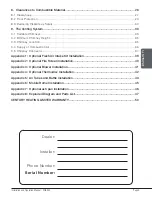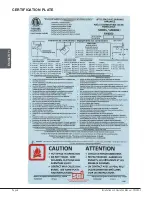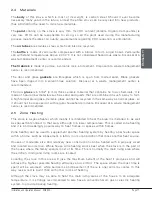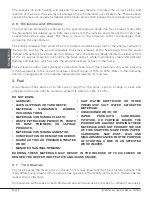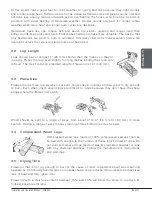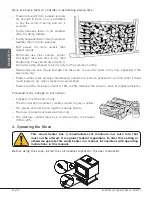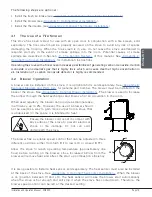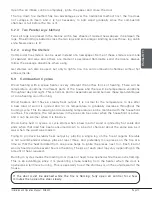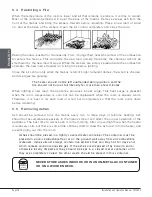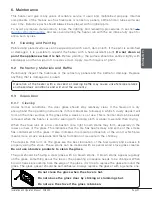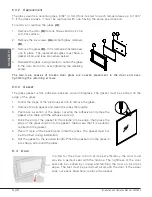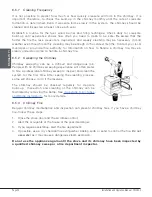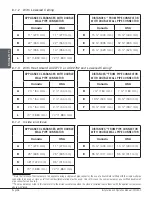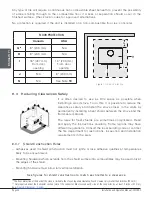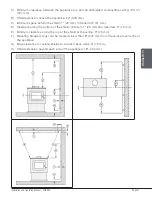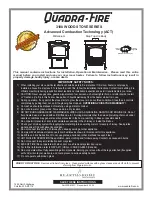
Page 19
Installation and Operation Manual - FW3500
ENGLISH
5.6 Air Intake Control
Once the firewood, firebox and chimney are hot, air intake can be
reduced to achieve a steady burn.
As the air intake is reduced, the burn rate decreases. This has the
effect of distributing the thermal energy of the fuel over a longer
period of time. In addition, the flow rate of exhaust through the
appliance and flue pipe slows down, which increases the duration
of the energy transfer of the exhaust gases. As the air intake is
reduced, the flame slows down. If the flames diminish to the point
of disappearing, the air intake has been reduced too early in the
combustion cycle or the wood used is too wet. If the wood is dry
and the air control is used properly, the flames should decrease,
but remain bright and stable.
On the other hand, too much air can make the fire uncontrollable, creating very high temperatures in
the unit as well as in the chimney and seriously damaging them. A reddish glow on the unit and on the
chimney components indicates overheating. Excessive temperatures can cause a chimney fire.
5.7 Fire Types
Using the air intake control is not the only way to match the appliance heat output to the desired
temperature in the house. A house will need far less heating in October than in January to
maintain a comfortable temperature. Filling the firebox full in fall weather will overheat the space.
Otherwise, the combustion rate will have to be reduced to a minimum and the fire will be smoky
and inefficient.
Here are some suggestions for building fires suitable for different heating needs.
5.7.1 Flash Fire
To build a small fire that will produce a low heat output, use small pieces of firewood and load
them crisscross in the firebox. The pieces should only be 3" (80 mm) to 4" (100 mm) in diameter.
After raking the coals, lay two pieces parallel to each other diagonally in the firebox and lay two
more across them in the other direction. Open the air control fully and only reduce the air after
the wood is fully flaming. This kind of fire is good for mild weather and should provide enough
heat for up to four hours. Small fires like this are a good time to use softer wood species and
avoid overheating the house.
5.7.2 Long Lasting Fire
For a fire that will last up to eight hours but will not produce intense heat, use soft wood and
place the logs compactly in the firebox. Before reducing the air intake, the load will have to burn
at full heat for long enough for charring the surface of the logs. The flame must be bright before
letting the fire burn by itself.
5.7.3 High Output Fires
When heating needs are high during cold weather, the fire should burn steadily and brightly. This
is the time to use larger pieces of hardwood. Place the biggest pieces at the back of the firebox
and place the rest of the pieces compactly. A densely built fire like this will produce the longest
combustion this stove is capable of.

